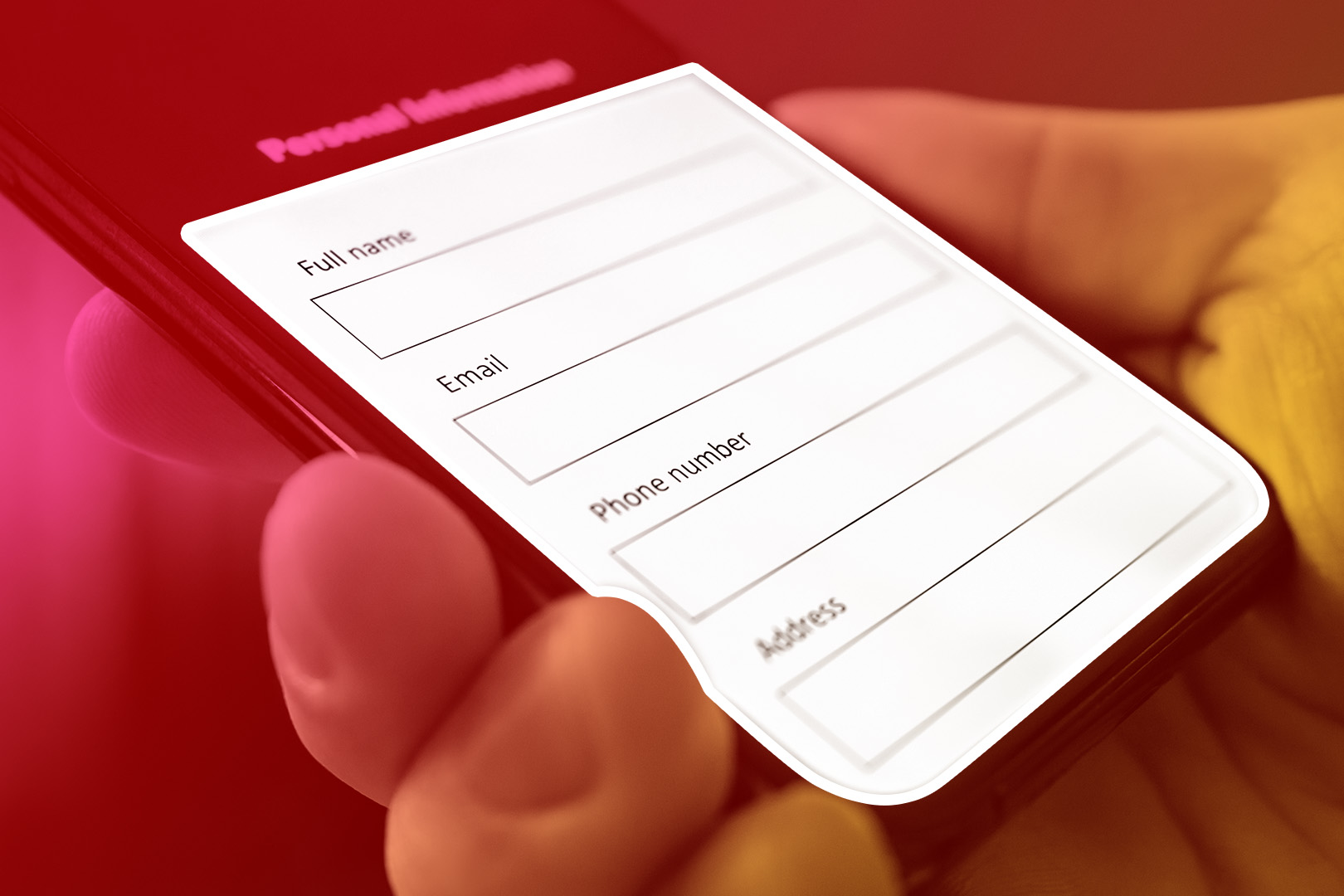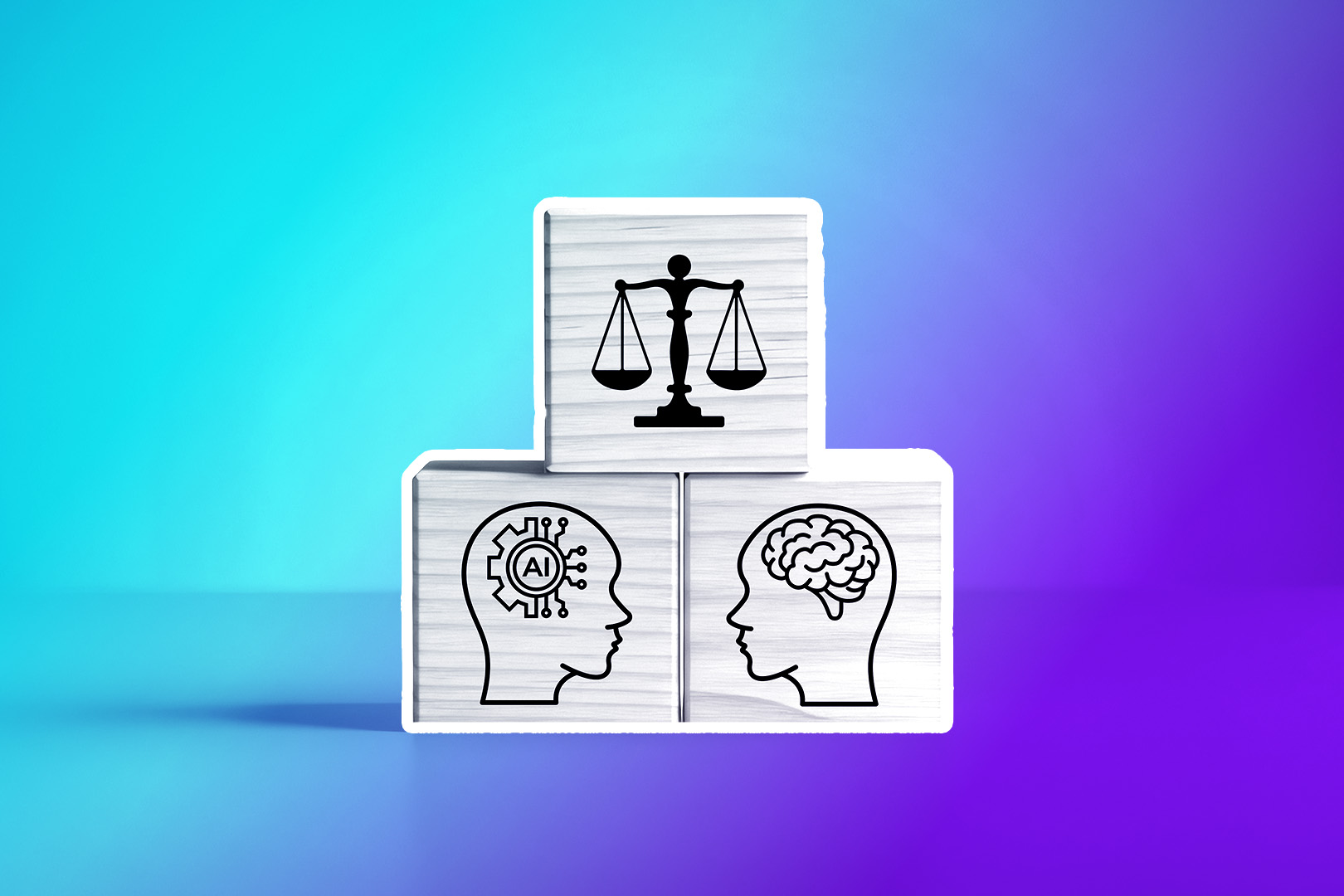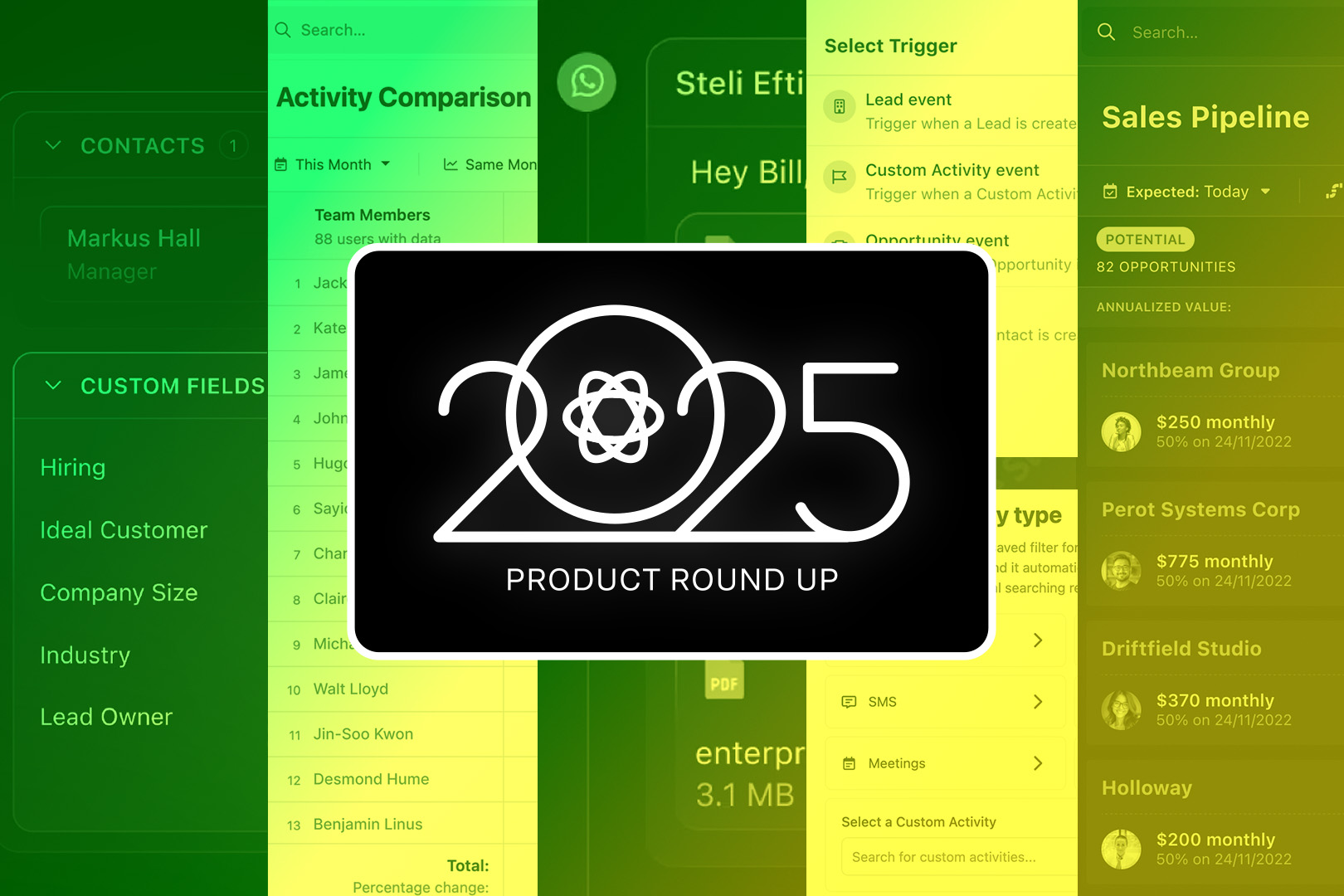Nonprofit organizations play an essential role in modern society. Without them, vital services would disappear, and a significant portion of the general public would suffer hardships.
Unfortunately, managing a nonprofit is exceptionally challenging. You must design marketing campaigns to get the word out and increase donor engagement. You have to run fundraising campaigns to finance your efforts. And you have to manage day-to-day operations effectively.
It's a lot to handle, but there's good news: technology can help you do all of it better.
Customer relationship management software, or CRM software for short, is a good example. A nonprofit CRM centralizes donor data, email/SMS outreach, and fundraising so you can replace spreadsheets and scale stewardship.
Once your organization invests in this kind of solution, it will be able to eliminate Excel spreadsheets and tackle contact management much more easily and efficiently.
Below we compare 11 top nonprofit CRMs with pros/cons, pricing notes, and who each is best for—plus a quick checklist to choose.
The 11 Best Nonprofit CRM Software Options
1. Close

Best for: Revenue-driven nonprofits
Close is an industry-leading customer relationship management software.
Organizations of all shapes and sizes, from brand-spankin'-new startups to well-established nonprofits, use it to track their target audiences, build deeper, more meaningful relationships with them, and turn the goodwill they've earned into dollars.
That makes Close ideal for revenue-driven nonprofits that blend donations, memberships, and earned-income programs.
If your organization produces funds in multiple ways, such as sales, donations, etc., you'll love the tools Close provides.
Pros of Close:
- Close is incredibly easy to use. Other apps have steep learning curves. We built Close with user-friendliness in mind. Trust me, you'll be up and running in less than an hour.
- With Close, you can manage all of your donors in one place, thanks to in-depth donor profiles. Always know who your donors are and their history with your organization.
- Our CRM solution is equipped with powerful automation capabilities. Use them to supercharge your daily calling, emailing, and texting efforts to engage donors.
- Close has dozens of integrations available, too. Connect your favorite tools (Mailchimp, anyone? How about Asana for project management? Slack?) We also integrate with Zapier, meaning almost every app can connect to Close.
- Use Close for reporting purposes as well. Easily track projections, leaderboards, and specific KPIs in real-time via a flexible and customizable analytics dashboard.
- Additionally, Close now offers a mobile app for iOS and Android, enhancing users' convenience in managing their donor relationships on the go. This dual-platform availability ensures that Close is accessible to a wider range of mobile users, allowing everyone to stay connected and efficient in their donor management activities regardless of their device preference.
The mobile app features an intuitive email composer that allows users to draft and send emails directly from their mobile devices, streamlining communication and enhancing productivity while on the move. Here is how that looks:

Close Mobile App Email Composer
Cons of Close:
- Close wasn't specifically created for nonprofit organizations. It will help you manage and connect with donors better than most other tools. But if you're looking for something tailor-made for charities, consider something else.
How Much Does Close Cost? One of the best things about Close is its affordability. Plans start at just $9 a month, billed annually. Sign up for the "Essentials" plan at $35 monthly, or the "Growth" plan at $99 monthly for all the bells and whistles.
It gets better; you're entitled to a 30 percent discount as a nonprofit organization. Talk to our sales team about your needs.
2. Bloomerang

Best for: Technology-averse nonprofits
Bloomerang is one of the most popular nonprofit CRM solutions. Organizations of all kinds use it because it's very user-friendly. If technology makes your head spin, you'll appreciate this platform's intuitive functionality and its top-rated customer support team.
Pros of Bloomerang:
- As mentioned above, Bloomerang is super easy to use
- This CRM is also visually pleasing, which makes using it more enjoyable
- With Bloomerang, users can manage many aspects of their nonprofits. Store contact information, create email campaigns, and run custom reports from one location
- Bloomerang is also equipped with online giving tools. Design custom donation pages and process payments without subscribing to a secondary payment processing tool
Cons of Bloomerang:
- Bloomerang is a great option for small- to medium-sized nonprofits that want to focus on their missions, not the technology they use. That said, it's not quite as robust as other options, and your organization may feel its limitations as it begins to grow.
How Much Does Bloomerang Cost? Prices for Bloomerang start at $99 a month. Users can have up to 1,000 records, send 5,000 emails monthly, and store 10 GB of file attachments. Users must pay more to have more records, send more emails, etc.
We should also mention that premium features like the "Online Giving Tools Suite" and the ability to process payments in-app require additional monthly fees.
3. DonorPerfect

Best for: Fundraising purposes
Want to know something crazy? DonorPerfect has been around for 40+ years, serves 50,000+ organizations, and has helped raise more than $100 billion. Wow!
You don't achieve that much success if your product is subpar. So, you know it's true when I say that DonorPerfect is a rock-solid non-profit software that any team can use for donor communication, event management, payment processing, and reporting purposes.
Pros of DonorPerfect:
- Every DonorPerfect plan supports an unlimited number of users
- This CRM software makes it easy to create a detailed constituent database
- With DonorPerfect, automation is a breeze. Users can use this tool to complete mundane tasks, send emails, and otherwise streamline day-to-day workflows
- DonorPerfect also allows users to create custom donation forms, accept payments in-app, and easily integrate with Quickbooks to manage organizational finances
Cons of DonorPerfect:
- Donorperfect is a powerful application, not affordable—especially if one wants to access top-end features. Keep this in mind while shopping for nonprofit software.
How Much Does DonorPerfect Cost? You need to reach out to them to get the pricing.
The company's most famous "Plus" plan gives users access to automated alerts and tasks, crowdfunding, and a Quickbooks integration.
4. Bonterra CRM

Best for: Nonprofit marketing
Bonterra CRM is a "best-in-class digital engagement platform" that enables nonprofits to connect with followers, build deep relationships, and eventually turn them into donors. This commitment to engagement makes it a great CRM platform for marketing purposes.
Pros of Bonterra CRM:
- Bonterra CRM supports rich donor profiles, complete with custom fields.
- This CRM solution makes it easy to automate a variety of day-to-day processes.
- With Bonterra CRM, users can build automated email marketing campaigns, manage their organization's social media presence, and send text messages in one app.
- Bonterra CRM also supports online fundraising. You can create custom donation forms and access machine learning insights to optimize them for greater success.
Cons of Bonterra CRM:
- In many ways, Bonterra CRM is a nonprofit marketer's dream. Users have all the tools they need to promote their organizations and causes. Unfortunately, learning how to use all of these tools takes work. Bonterra CRM isn't the most user-friendly solution.
How Much Does Bonterra CRM Cost? I'm not sure… Bonterra CRM doesn't post pricing on its website, so you'll need to contact them yourself to learn about the costs of this CRM solution.
5. Neon CRM

Best for: Small charities
Neon One is a business platform for small to medium size charities. With it, users can manage and communicate with donors, build fundraising campaigns, plan events for donors, and streamline operations to boost productivity.
Neon CRM is one of the cloud-based tools that Neon One offers. (As you would expect, it allows users to manage and communicate with donors.)
Pros of Neon CRM:
- Neon CRM enables users to create large donor databases, complete with customized fields, and easily track their organization's relationship with each donor.
- This CRM platform includes automation, allowing users to streamline repetitive tasks.
- With Neon CRM, users can use segmentation, create and deliver personalized messages at predetermined times, and succeed with email.
- Neon CRM includes volunteer management capabilities, reporting features, and fundraising tools, making it a complete solution for nonprofits.
Cons of Neon CRM:
- Some say the Neon One suite of tools is powerful. However, the Neon CRM on its own seems to leave users wanting more.
How Much Does Neon CRM Cost? Prices for Neon CRM range from $99 to $399 a month. The more you pay, the more features you'll have access to. (Note: Neon CRM requires all users to purchase its "Data and Implementation" service for a one-time fee of $300.)
6. Kindful CRM

Best for: Complete customization
Kindful CRM joined forces with Bloomerang (mentioned above) in 2022. However, the company still sells its own CRM system. This is good news because Kindful CRM has a lot to offer!
In its own words, Kindful CRM will help you "Raise More. Grow More. Do More." That's a slogan I can definitely agree with. But can it live up to the hype?
Pros of Kindful CRM:
- Kindful makes donor management easy. View contact details and past interactions on a single screen. Then, decide how to best engage each donor based on this info.
- With Kindful, users can supercharge their fundraising efforts thanks to unlimited donation pages, embedded donation buttons, and recurring giving features.
- This CRM system also allows for simple donor communication. Send receipts, year-end tax summaries, and solicitation emails using built-in templates.
- Kindful CRM includes reporting features, too. Create custom reports or start with one of thirteen premade report templates inside the app.
Cons of Kindful CRM:
- There's a lot to like about Kindful CRM, except for the price. It's more expensive than many other CRM tools out there. (See below for a more thorough price breakdown).
How Much Does Kindful CRM Cost? Prices start at $100 a month for 1,000 contacts and basic features. So, major organizations with large donor databases and needing advanced features may end up paying thousands of dollars a year to access this tool.
7. Blackbaud

Best for: In-depth donor data
Blackbaud is another popular nonprofit CRM solution. With it, charitable organizations can manage donors, boost fundraising, update accounts, accept payments, and more.
The company actually offers two CRM solutions: Blackbaud CRM, designed for enterprise-level brands, and Raiser's Edge, made for smaller charities. Both have a wealth of features that can propel your nonprofit forward, such as…
Pros of Blackbaud:
- Blackbaud helps nonprofits collect and understand donor data. What good is the information in your CRM if you can't use it? Blackbaud makes it possible.
- This CRM has robust donor communication features, too. Design and automate email sequences, then optimize them based on the app's predictive intelligence.
- With Blackbaud, users consistently achieve their fundraising goals thanks to multichannel communication tools, custom donor pages, and detailed metrics.
- Blackbaud also offers a mobile app that enables users to accept payments from an employee's smartphone. This is perfect for nonprofit-sponsored events.
Cons of Blackbaud:
- Like many other in-depth tools, Blackbaud isn't the easiest CRM to use. If you invest in this solution for your nonprofit, expect a steep learning curve.
How Much Does Blackbaud Cost? Unfortunately, Blackbaud doesn't post pricing on its website. You'll need to contact this CRM software provider to learn more.
8. Fundly CRM

Best for: Donor management
Next up, Fundly CRM. One of the best things about this CRM system is that the people who built it are nonprofit industry veterans. As such, every feature has a specific purpose. I recommend this tool for small charities that need a solid donor management solution.
Pros of Fundly CRM:
- Fundly CRM helps nonprofits master donor data with a few helpful features: custom fields, which allow users to customize their databases; smart tags, which help users streamline organizational efforts; and wealth profiles, which enable users to understand their charity's donor base better and improve fundraising campaigns.
- With Fundly CRM, users can easily communicate with donors. Use this software to design and send custom newsletters to boost fundraising efforts.
- Fundly CRM allows users to segment donors and then report on various metrics related to donations, events, financials, and more—all at the click of a button.
Cons of Fundly CRM:
- Fundly CRM excels at donor management, but its total feature set isn't as powerful in other areas. If you need a tool to manage contacts, develop complex email campaigns, accept payments, etc. I recommend investing in a different app.
How Much Does Fundly CRM Cost? Pricing for Fundly CRM ranges from $72 to $280 a month. The amount of money you pay depends on the size of your donor database and the specific features you need access to.
9. CiviCRM

Best for: Nonprofits on a budget
So far, every nonprofit CRM we've covered costs money—some more than others. But aside from the occasional free trial, you'll need to fork over a lump of cash every month to use the tools. Not so with CiviCRM! It's completely free and perfect for organizations on a budget.
Pros of CiviCRM:
- Maybe I wasn't clear before—CiviCRM is entirely free. Heck yes!
- With CiviCRM, users can store donor data, add custom fields to all donor profiles, and manage contacts proficiently. Data can be easily exported as well.
- This CRM solution supports membership programs, too. Configure membership levels, communicate with members and accept payments from the app.
- CiviCRM also deserves a mention for its advocacy campaigns feature. Create surveys and petitions, record responses, and more to advance your organization's mission.
Cons of CiviCRM:
- CiviCRM is powerful but less intuitive; budget-sensitive teams may still favor it if they have admin support for setup and training.
How Much Does CiviCRM Cost? Zip, zero, zilch… One of the best things about CiviCRM is that it costs nothing, which means even the most cash-strapped organizations can afford it.
10. Salesforce Nonprofit Cloud

Best for: Established nonprofits
Salesforce is one of the biggest names in software. One could say that this multibillion-dollar company took CRM solutions into the mainstream. The question is, can Salesforce's nonprofit offering attract the same loyal following as its traditional business offerings have? Let's take a look at the tool's pros and cons to see how it stacks up against the competition:
Ventajas de Salesforce:
- Salesforce Nonprofit Cloud gives users a birds-eye view of their organizations.
- With this CRM software, users can create custom donor profiles and track constituent relationships, turning basic data points into actionable information.
- Salesforce Nonprofit Cloud has fundraising tools, too. Users can engage users via email and direct mail, build relationships, and collect funds via donation pages.
- Like the original Salesforce product, Salesforce Nonprofit Cloud offers a wealth of integration options, including MailChimp for email and Hootsuite for social media.
Contras de Salesforce:
- Salesforce Nonprofit Cloud charges per user, which means the CRM solution can be quite expensive for large organizations.
How Much Does Salesforce Cost? Eligible organizations can use Salesforce Nonprofit Cloud for free. All others will pay between $60 and $325 a month per user. Higher fees give users access to more in-depth and complex features, just like you think they would.
11. DonorDock

Best for: Increasing productivity
Last but certainly not least, we have DonorDock—a solid tool if your organization aims to boost productivity. This nonprofit software allows users to access intuitive donor management, email marketing, and reporting features, each designed to streamline operations.
Pros of DonorDock:
- DonorDock offers a free plan, which is great news for small, low-budget charities!
- All DonorDock features, from its fundraising tools to its task management capabilities, are simple, making them easy for even tech-challenged users.
- With DonorDock, users can track donors, create custom email campaigns, and then automate these messages to send at predetermined intervals.
- DonorDock users can create custom donation pages, too. The platform integrates with Paypal and Stripe, so funds are easily collected and reported on
Cons of DonorDock:
- Honestly, there's not much to dislike about DonorDock. The only knock I can think of is that it's not the cheapest option on this list. It may be out of reach for some charities.
How Much Does DonorDock Cost? As mentioned above, DonorDock can be used for free, albeit with limited functionality. Paid plans start at $120 a month. To access top-level features, however, potential users should expect to pay $585 a month!
What are the Benefits of a Non-Profit CRM?
We alluded to the benefits of CRM at the beginning of this guide. But before you spend money on this kind of solution, you probably want to know exactly what you're getting. Money doesn't grow on trees, after all. You need to make sure you spend organizational funds wisely.
I totally get it! This is why I've listed three important benefits of CRM for nonprofits. Once you start using a proven CRM system, you'll enjoy…
Improved Donor Relationships
CRM software will help you track, manage, and communicate with donors. Doing so will improve your organization's relationship with them and help ensure future support.
Retaining a donor is often far cheaper than acquiring a new one—use your CRM to schedule thank-you touchpoints and lapsed-donor win-backs.
Sadly, nonprofit organizations' average donor retention rate is 45 percent, which is less than ideal.
Imagine how much more money your organization would have—and the good it could do with that money—if your retention rate was 75 percent or higher. A CRM can help with that.
Streamlined Employee Workflows
Nonprofits are always looking for ways to do more with less.
Chances are, you manage a small team, and each member wears multiple hats. You love your job, so you're not complaining. But when workloads pile up, it stresses you out.
The best CRM systems are equipped with communication tools, marketing automation capabilities, and other features that allow nonprofits to streamline their workflows.
These features make time-consuming tasks like messaging major donors, implementing new outreach campaigns, and increasing cause advocacy much more productive. Put simply, with CRM, your team will get more done faster, enabling you to advance organizational goals.
Increased Fundraising Efforts
Effective donor management via CRM will boost your fundraising efforts, too.
Think about it: when you develop solid relationships with current donors, they'll be more likely to donate regularly. Why? Because they'll know your organization, support your mission, and trust you to use the funds they send positively and responsibly.
CRM can help convince new people to support your organization as well. Automation tools make it easy to nurture email subscribers consistently. The result? Potential donors get to know your organization, learn about its mission, and develop trust—just like current donors.
Key Features of a Non-Profit CRM Software
Every nonprofit CRM software is different. However, the best ones will all have the specific features you need for effective constituent relationship management. Here are five features to look for:
- Donor Profiles: Your chosen CRM should feature donor profiles. And each profile should store information like donor contact details, interests, engagement levels, etc.
- Marketing Tools: Top-level CRMs make marketing easier. Choose a tool that will allow you to create personalized emails and automate their sending at specific times.
- Online Donation Pages: Does your preferred CRM allow you to craft online donation pages? If not, does it integrate with a secondary tool that does? Speaking of…
- Integrations: Your CRM system, while important, isn't the only tool you'll use to manage your nonprofit. Choose a solution that integrates with your other apps.
- Custom Reports: Finally, make sure your CRM of choice simplifies the reporting process. Can you create custom reports based on specific KPIs? If not, move on.
Of course, your nonprofit organization is unique. What works for one charity might not work for another. If you have specific requirements, ensure the CRMs you're considering meet them, even if those requirements weren't included in the list of key features above.
How to Choose a CRM Solution For Your Non-Profit
I've shown you the 11 best CRMs for nonprofits, illuminated the benefits of this kind of software, and told you what to look for in a tool of this nature. Now what?
Let's discuss choosing the perfect CRM solution for your nonprofit.
The truth is, there are tons of CRMs out there. Many of them have similar functionality. How do you choose the right tool? It's not hard. Just ask yourself the five questions below:
How Many Users Do I Have?
First, decide how many employees will need to access your CRM.
Many tools limit users—or charge extra money for additional users. You should know what to expect in this regard so you aren't blindsided in the later stages of the CRM buying process.
You'll also need to determine the number of records, AKA donor profiles, you'll need. Again, most CRMs charge extra money to store and manage extra donors. (More on budget below.)
What Features Do I Need?
Next, what do you need your CRM system to do?
Are you looking for an all-in-one solution that will enable you to store donor information, manage peer-to-peer fundraising campaigns, and offer customer support? Or do you need a simple solution to make managing donor relationships and viewing metrics easy?
Decide what CRM features you need access to. Then, choose a platform that has them.
Is the CRM System User-Friendly?
Your CRM software should make life easier for your nonprofit.
If the tools you're looking at aren't user-friendly, I'd stop looking at them. The last thing you want is to invest in a solution that only neurosurgeons can operate proficiently.
How do you determine the usability of a piece of software? There are two ways: you can sign up for free trials. This will allow you to test features for every CRM on your list. You can read reviews to see what past and current users think of each tool. Which leads us to…
What Do Others Think of the CRM Platform?
Always read CRM reviews!
You may have signed up for a free trial and tried every feature a particular CRM has to offer. But there are always a few things you won't be able to determine during your trial period.
For example, is the tool's customer support team easy to reach, knowledgeable, and pleasant to interact with? After completing a free trial, you probably won't know the answer to this question. So, you'll need to read reviews to understand other people's experiences.
Sites like G2, Capterra, and even social networks like LinkedIn can provide this information.
What’s My Budget?
Last but certainly not least, consider your budget when evaluating CRM systems.
Some platforms have all the donor management tools you could ever ask for. But if they cost an arm and a leg to access every month, you might want to invest in a different solution.
The key is balance. Choose well-respected, easy-to-use CRM software that has the features you need and fits your current budget. It might not be the perfect app.
But if it gets the job done and keeps your organization in the black, so to speak, I'd recommend that option over a world-busting tool that you can't afford.
Why Nonprofits Choose Close
The donor management software you choose for your organization is essential. With the right platform, everything from storing donor data to running fundraising campaigns will be easier. Choose the wrong solutions, and… Well, let's just say you don't want to do that.
No pressure, right? Don't worry, I'm going to make the choice super simple for you: try Close.
Close is an easy-to-use CRM with a wealth of powerful features. With it, you can easily track donors and their engagement levels, design automated outreach campaigns that secure donations on autopilot, and evaluate your efforts via customized reports.
Start your free 14-day trial of Close today to see if it's the right CRM for your nonprofit.
(And remember, if you decide to keep using our platform, we'll set you up with a 30 percent discount to help support the important work you do, making Close one of the most affordable CRMs!)












